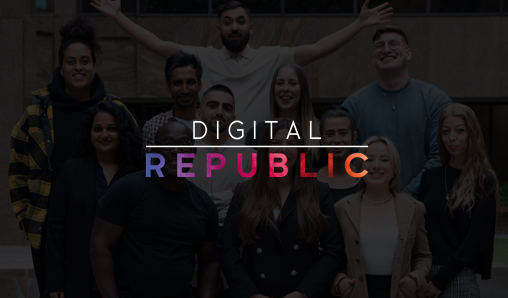
The importance of hiring for soft skills
When drawing up a list of criteria for any opening in your team, it’s easy to fall foul of focusing purely on the technical must-haves of any potential candidate.
We look for people who understand essential programming languages, have experience using this certain software or programmes, and be able to demonstrate certain digital capabilities.
Whilst in many cases, technical skills, and know-how are essential if they are to do their role, increasingly, hiring teams are placing a greater emphasis on a candidate’s softer, more innate skills to widen their candidate pool.
In particular, and with teams continuing to work in a hybrid, dispersed way, soft skills have never been more important for teams to stay on track, empathise and communicate with each other and continue to be productive.
Balance between hard and soft skills is key here. Would someone with the technical experience be the ideal fit for your team if they demonstrated a lack of emotional intelligence and ability to work with others during testing times?
So, what are the soft skills to look out for?
As the world of work changes rapidly around us, so do the soft skills needed to excel in the fourth industrial revolution.
While skills gaps look likely to continue to grow, The World Economic Forum’s The Future of Jobs Report 2020, outlined the following soft skills as most sought after over the next few years
- Complex problem solving
- Critical thinking
- Creativity
- People management
- Coordinating with others
- Emotional intelligence
- Decision making and judgement
- Service orientation
- Negotiation
- Cognitive flexibility
As a recruitment team or hiring manager, being able to identify these sought-after skills alongside evidence of core technical skills throughout your recruitment process is more important now than ever before.
The benefits of hiring for soft skills
Focusing on soft skills opens a wider, more diverse candidate pool
During the interview process, look for candidates that show traits or demonstrate they are curious, quick to learn and able to think critically and/or creatively.
Technical skills can be learned, so seeking out candidates with potential, not simply the existing credentials will lead to a robust talent pipeline.
Not forgetting, casting the net wider will capture candidates from different backgrounds and demographics which will boost your company’s diversity, in terms of both people and ideas.
Greater creativity and ideas will lead to greater innovation and productivity
To keep driving your business forward you need ideas from your teams. You need people to think both creatively, but also to take a step back analyse and solve any potential issues.
New ideas, new products, new ways of working will all be successful if put in place by a team with the capabilities and cognitive flexibility to handle it.
Your retention rates will soar
It’s unsurprising really, but teams that are made of people with the ability to empathise, communicate and work collaboratively will undoubtedly be more successful and happier than those that aren’t.
Not to mention, remote and hybrid working, which have placed huge pressures like never before on many businesses, and it’s been the ability to work effectively as a team and good leadership which has been the key to keeping them together.
How to hire for soft skills
You know what the soft skills are, and you know some of the benefits they’ll bring to your team, but how do you switch to a soft skills focus in your hiring process?
Start by looking at your job descriptions and adverts
If they’re simply a breakdown of must-haves and technical criteria with the odd courtesy nod to a soft skill thrown in, they could do with being changed.
Really drill down on the soft skills an ideal candidate would need and refine your advert accordingly and bring them to the forefront.
Make it clear how important each one is to the success of the team.
Get more from your interviews
Structure your interviews in a way that allows you to ask the right questions and draw out evidence of a candidate’s soft skills.
Using standardised and behavioural questions is an effective way to identify soft skills, particularly in interviews for more technical roles where the focus is often on knowledge and hard skills.
You can also bring others into the interview to focus on identifying these skills. In particular, having someone from outside your team involved in the process will mean they can focus more on gathering information around these traits.
The importance of hiring for soft skills
As we continue to operate remotely and in a hybrid way, attracting and recruiting talent with the right blend of soft and hard skills will be the key to success.
Teams that contain employees with a strong mix will ensure knowledge and technical skills are not hampered by poor collaboration, poor leadership or poor decisions.
For recruitment teams, looking beyond a candidate’s hard skills and incorporating a genuine focus on soft skills in your recruitment strategies will no doubt mean you unearth candidates who can get the best out of themselves and the team around them.
For more support on how to hire for soft skills, don’t hesitate to get in touch with the team at Digital Republic Talent.
Looking to build or expand your team with the best digital talent? Check out how our new Products and Services can support you here
Are you a Digital Analytics, Programmatic, Cloud Computing or Data Science practitioner who is looking for a new career step at the moment? Check out our latest live vacancies here



